As the popularity of nootropics continues to rise, understanding their benefits and choosing the right supplement for your needs has never been more important. From students aiming to improve academic performance to professionals seeking to stay sharp and focused at work, those looking to enhance cognitive function, improve focus, and boost overall mental performance may turn to nootropics as a promising option. (1)
Nootropics are typically formulated with a mix of ingredients designed to target specific cognitive needs, such as anxiety reduction, mood enhancement, increased productivity, improved memory, sustained energy, and sharpened focus. (2) Like any supplement, not all nootropics are created equal. While some key ingredients are backed by solid clinical evidence, others lack sufficient research to fully support their effectiveness.
As a certified holistic nutritionist, I’ve teamed up with other nutrition and health experts to identify and review the six best nootropics of 2024. Learn why we chose these options and what you should consider when choosing a nootropic supplement.
Editors choice: Ritual Stress Relief
Ritual Stress Relief is our top pick because it offers a combination of ashwagandha and L-theanine, which are known for reducing stress and anxiety. (3, 4) Plus, Ritual is a trusted brand with third-party tested products, transparent labeling, and traceable ingredients. Read on for full details on why Ritual Stress Relief is our editor’s choice.
Medical disclaimer: This article is intended for educational and informational purposes only. It is not intended as a substitute for medical advice. For health advice, contact a licensed healthcare provider.
Our picks for the best nootropics
- Best for anxiety: Ritual Stress Relief
- Best for mood: Transparent Labs Rhodiola Rosea
- Best for productivity: Onnit Alpha Brain Black Label
- Best for memory: Legion Athletics Ascend
- Best for energy: Lifeforce Peak Rise
- Best for focus: Hunter Evolve Hunter Focus
Compare nootropics
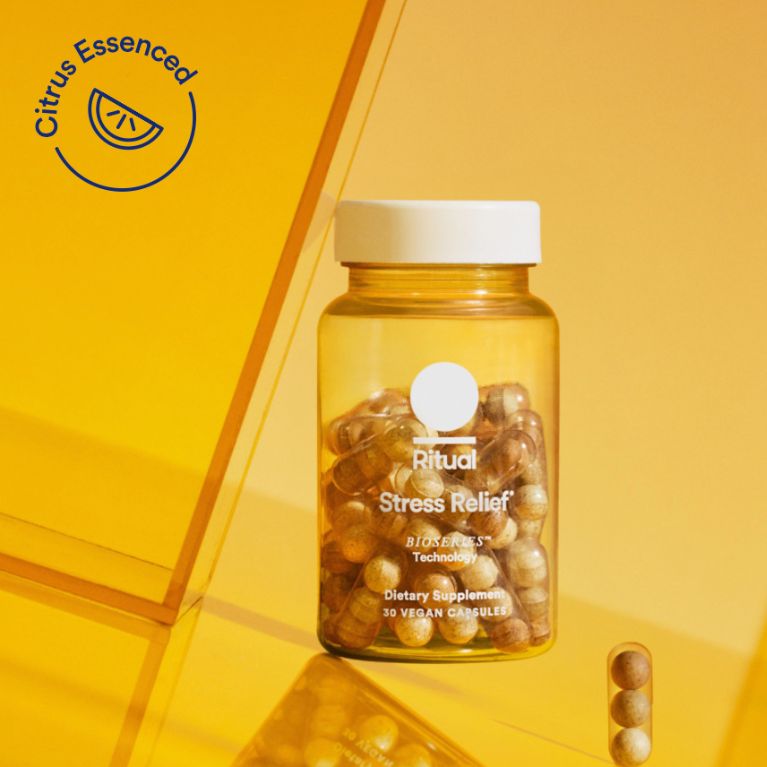
|
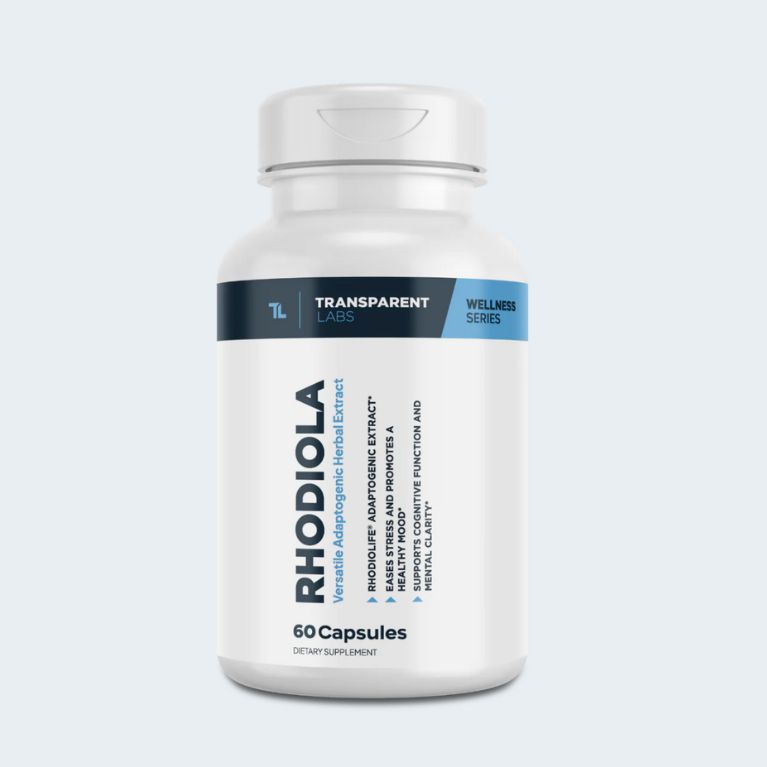
|
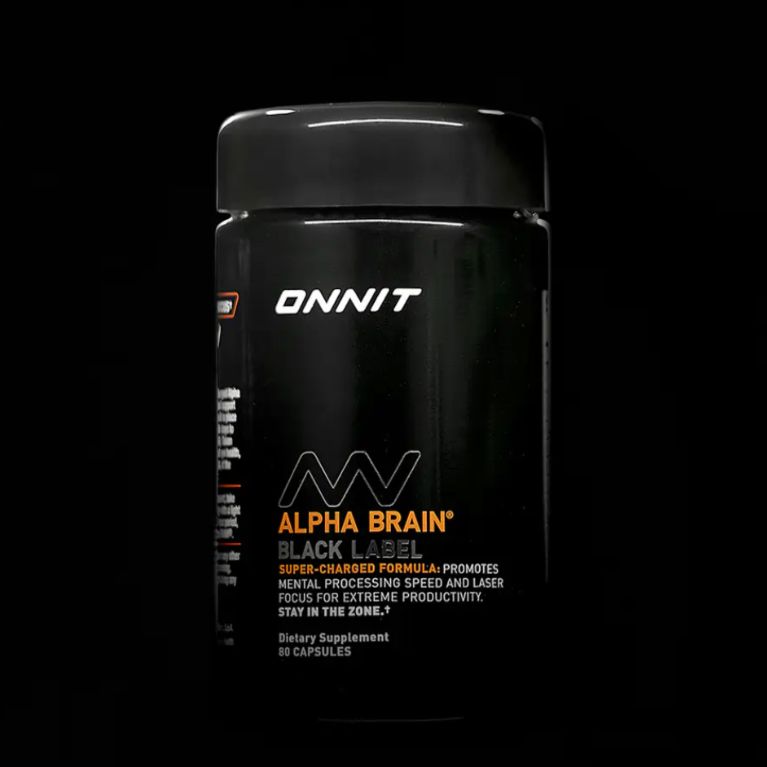
|
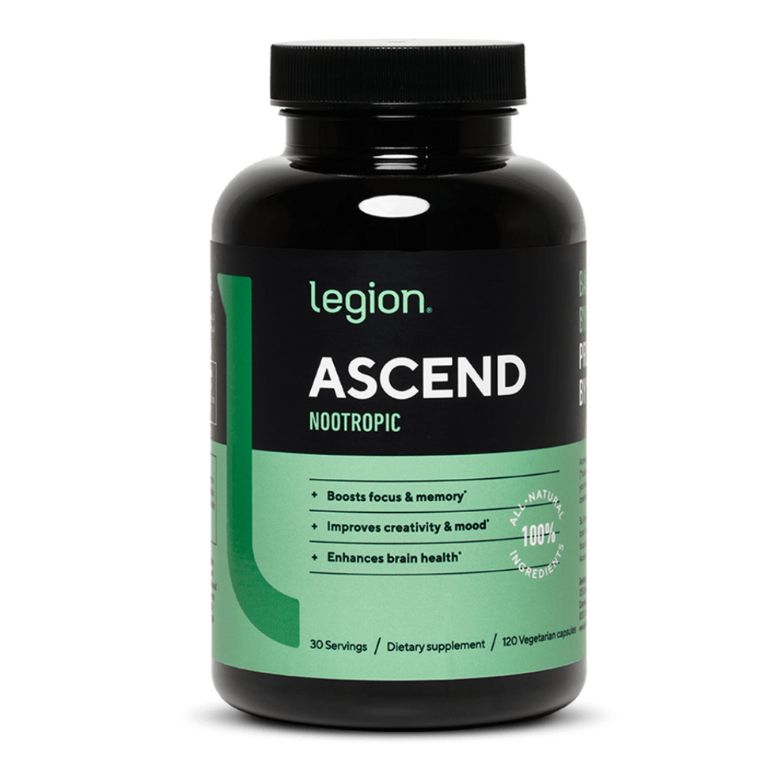
|
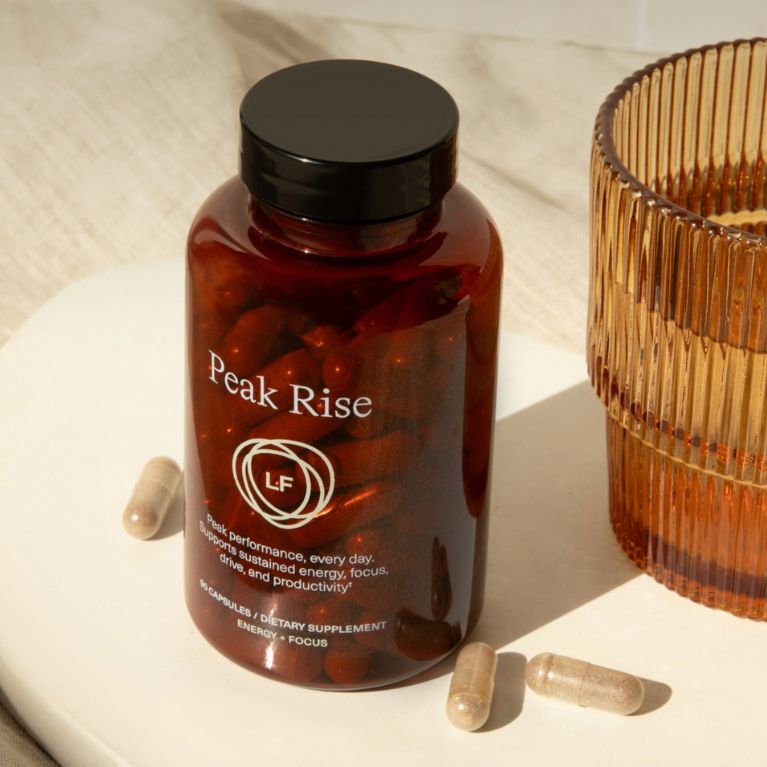
|
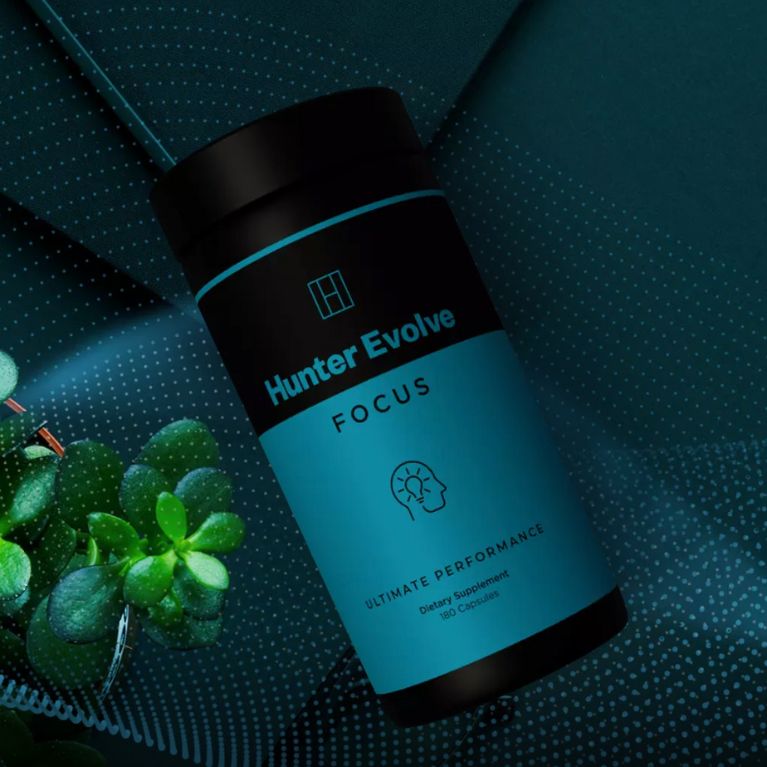
|
|
| Ritual Stress Relief | Transparent Labs Rhodiola Rosea | Onnit Alpha Brain Black Label | Legion Athletics Ascend | Lifeforce Peak Rise | Hunter Evolve Hunter Focus | |
| Rating | ||||||
| Active ingredients | Saffron, ashwagandha, L-theanine | Rhodiola | Cognizin® Citicoline, huperzia serrata, caffeine, L-theanine, phosphatidylserine, Lutemax2020®, mucuna pruriens | Avena Sativa, agmatine sulfate, bacopa monnieri, alpha GPC, uridine monophosphate | Dynamine®, TeaCrine®, caffeine, Acetyl-L-carnitine HCl, Alpinia galanga, Panax ginseng, choline, sage, IQ200 | Acetyl-L-carnitine, L-tyrosine, lion’s mane, bacopa, ashwagandha, citicoline, L-theanine, ginkgo biloba, caffeine, phosphatidylserine, Rhodiola, Panax ginseng |
| Form | Capsule | Capsule | Capsule | Capsule | Capsule | Capsule |
| Price per serving | $1.80 | $0.83 | $6.25 | $1.67 | $4.00 | $3.00 |
| Best for | Anxiety | Mood | Productivity | Memory | Energy | Focus |
Best nootropics for anxiety: Ritual Stress Relief
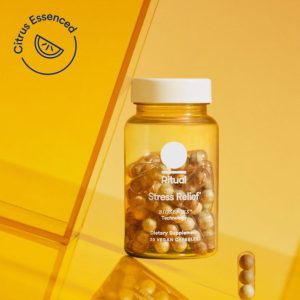

Key product features
What you should know
Ritual Stress Relief combines clinically proven ingredients like saffron, ashwagandha, and L-theanine to effectively promote calmness. This supplement is designed with transparency and quality in mind, ensuring consumers can trust its safety and efficacy.
- While ashwagandha has been shown in some research to reduce anxiety and stress, the 80 milligrams in this formula is far below the clinically studied dose of 300 to 600 milligrams. (5)
- At $1.80 per serving, the cost of Ritual Stress Relief is about average for a nootropic supplement.
- It’s best suited for individuals seeking a natural and effective solution to manage anxiety and stress and for those who value transparency in ingredient sourcing.
Why we like Ritual Stress Relief as best for anxiety
Ritual Stress Relief stands out as the best nootropic supplement for anxiety, thanks to its thoughtful blend of clinically proven ingredients designed to help reduce stress and promote calmness. Each capsule contains 28 milligrams (mg) of saffron, 80 mg of ashwagandha, and 200 mg of L-theanine.
Clinical studies have shown that 15-30 mg of saffron per day may significantly improve mood and reduce symptoms of anxiety and depression. According to one study, saffron’s potent antioxidant properties may help reduce oxidative stress, which can exacerbate anxiety. (6)
Ashwagandha, an adaptogen used in Ayurvedic medicine, further supports stress reduction by helping to lower cortisol levels, the body’s primary stress hormone. While clinical studies often use higher doses (around 300-600 mg per day) of an ashwagandha extract, the benefit is less predictable unless a synergy exists when combined with other calming ingredients. (3)
L-theanine, an amino acid commonly found in tea leaves, promotes relaxation without causing drowsiness. Clinical studies often use doses ranging from 200-400 mg per day leading to reductions in stress and anxiety. Ritual Stress Relief is formulated to provide a solid middle-ground dosage that can help promote calmness and improve focus without over-sedation. (4)
One of the key features of Ritual Stress Relief is its commitment to transparency and quality. The supplement is third-party tested, vegan, non-GMO, and free from synthetic fillers. Ritual goes beyond just listing ingredients on the label; they provide detailed information about the sourcing and testing of each ingredient. This level of transparency is uncommon in the supplement industry and sets Ritual apart from the competition.
“Transparency is important among dietary supplements, and so is including ingredients that match what has been shown in clinical research,” adds Chris Mohr, PhD, RD.
Ritual Stress Relief is priced at $54 for a 30-day supply, which breaks down to $1.80 per serving. This is about average for a comparable nootropic supplement. Keep in mind that Ritual uses a subscription-based model that automatically ships every 30 days. Skipping an order or canceling your subscription can be done at any time.
For more information about this brand, check out our full Ritual review.
What customers are saying
Ritual Stress Relief has an average rating of 4.3 out of 5 stars based on 52 global ratings on Amazon. Most of the reviews highlight the quality and effectiveness of the product, and the taste of the capsule.
“I definitely feel better in the mornings, more motivated, and worry/stress-free. My performance levels also improved. I also love the citrus smell—I find it pleasant,” writes Amazon customer Raúl P.
“They have helped a lot with my stress, especially with some of my extremely stressful times lately. They are easy to swallow and have a pleasant flavor.”
Sarah Traniello, verified Amazon customer
A few consumers experienced adverse reactions.
“Within 15 minutes of taking this supplement, I experienced dizziness and unrelenting nausea that even prescription anti-nausea medicine did not relieve,” writes an Amazon buyer with the username HollyLiz.
Specs
| Active ingredients | Saffron, ashwagandha, L-theanine |
| Form | Capsule |
| Dose | 1 capsule |
| Servings per container | 30 |
| Cost per serving | $1.80 |
Best nootropics for mood: Transparent Labs Rhodiola Rosea
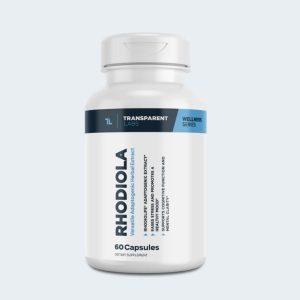

Key product features
What you should know
Transparent Labs is known for its commitment to purity and quality, ensuring all its supplements are free from artificial additives and rigorously third-party tested. Their Rhodiola formula contains 600 mg of Rhodiola rosea.
- Rhodiola rosea helps with the release neurotransmitters such as serotonin and dopamine. These are chemicals naturally produced in your brain that regulate mood and stress resilience.
- At $49.99 for a 60-day supply, the supplement offers excellent value at approximately $0.83 per serving.
- This supplement is ideal for individuals seeking a natural way to improve their mood and manage stress effectively and for those who appreciate the simplicity of a single-ingredient focus.
Why we like Transparent Labs Rhodiola Rosea as best for mood
We love Transparent Labs Rhodiola Rosea because it contains a potent 600 mg dose of Rhodiola rosea, a well-researched adaptogen known for its mood-lifting properties and ability to help manage stress. Rhodiola rosea has been used for centuries in traditional medicine to combat fatigue and improve overall mental well-being. Clinical studies support its efficacy, particularly at doses ranging from 200-600 mg per day, aligning Transparent Labs’ dosage level with reported potency and efficacy. (6)
Rhodiola rosea works by influencing the release of neurotransmitters like serotonin and dopamine, which play crucial roles in regulating mood and emotions. By contributing to a more balanced mood and reducing feelings of stress, Rhodiola may help individuals manage their emotional well-being more effectively. (6)
However, while the 600 mg dosage is effective for many, it might be too strong for individuals who are sensitive to adaptogens or new to nootropic supplements. Plus, since each capsule contains the total 600mg, there isn’t a way to work up to the final dose. Transparent Labs recommends taking Rhodiola for six to 10 weeks, followed by a three- to four-week break to see how the dose and supplement affect their wellbeing.
Transparent Labs is committed to purity and quality, ensuring that their Rhodiola rosea supplement is made with non-GMO ingredients and free from artificial additives. The product undergoes rigorous third-party testing to verify its potency and purity, providing consumers with confidence in its safety and effectiveness. This transparency and commitment to quality are distinguishing features of the brand.
Priced at $49.99 for a 60-day supply, Transparent Labs Rhodiola Rosea offers good value at approximately $0.83 per serving. While this might seem higher compared to other Rhodiola supplements on the market, we think the high quality, effective dosage, and third-party testing make it an attractive option for those looking to enhance their mood naturally.
Specs
| Active ingredients | Rhodiola rosea |
| Form | Capsule |
| Dose | 1 capsule |
| Servings per container | 60 |
| Cost per serving | $0.83 |
Best nootropics for productivity: Onnit Alpha Brain Black Label
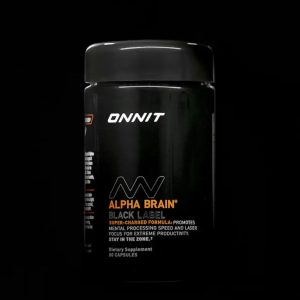

Key product features
What you should know
Onnit Alpha Brain Black Label is a premium nootropic designed for productivity, featuring eight high-quality key ingredients. The formula is free from dairy, gluten, and soy.
- This formula includes 1,000 milligrams of Mucuna pruriens, setting it apart from many other nootropics. M. pruriens supports dopamine production and may enhance mood and cognitive function. (7)
- At a cost of $6.25 per serving, this supplement is significantly more expensive than other nootropics on the market.
- Onnit Alpha Brain Black Label is best for individuals who are serious about enhancing their productivity and cognitive function and are willing to invest in a premium nootropic supplement.
Why we like Onnit Alpha Brain Black Label as best for productivity
Onnit Alpha Brain Black Label is a premium nootropic supplement designed to enhance productivity, combining a variety of potent ingredients that support cognitive function, focus, and mental clarity.
Each serving contains 1,000 mg of Mucuna pruriens, 500 mg of lion’s mane, 250 mg of Cognizin® citicoline, 200 mg of phosphatidylserine, 100 mg of L-theanine, 25 mg of caffeine anhydrous, 20 mg of huperzia serrata, and 20 mg of Lutemax 2020® Marigold.
Mucuna pruriens, also known as velvet bean, contains L-DOPA and is known to support dopamine production. (7) There is limited human research on Mucuna pruriens, but clinical trials suggest it may alleviate symptoms of Parkinson’s disease, though that’s not the same as improving clarity and productivity in otherwise healthy individuals, making this study impossible to extrapolate to a wide audience. (8) Individuals taking medications containing L-DOPA or diabetes medication should not use this supplement.
Lion’s mane mushroom is renowned for its neuroprotective properties and ability to stimulate nerve growth factor (NGF) production. However, most studies use dosages of 1,000-3,000 mg, so this formula falls a little short. (9)
Cognizin® citicoline may improve memory and attention, especially in older adults, but more long-term research is needed, particularly in a younger, otherwise healthy population. (10) Phosphatidylserine has been shown to improve cognitive abilities and reduce cognitive decline. Effective dosages in clinical settings range from 100-300 mg and this product falls right in the middle, with 200 mg. (11)
L-theanine, commonly found in tea, is purported to promote relaxation without drowsiness, enhancing focus when paired with caffeine. The 100 mg included here is within the effective range, helping promote a calm yet alert mental state. Caffeine anhydrous complements L-theanine by providing a mild stimulant effect without causing jitteriness, enhancing overall productivity. (4, 12)
The formula also contains Huperzia serrata, standardized to huperzine A, which is known for its ability to inhibit the breakdown of acetylcholine, thereby, the thought is that it can enhance memory and learning. Of note, not a single study has been conducted in otherwise healthy individuals; most data have only demonstrated this finding is in Alzheimer’s patients. (13) Furthermore, clinical doses of huperzine A range from 50-200 micrograms (mcg), putting this supplement on the high end, standardized at 200 mcg.
Lutemax 2020® Marigold, containing lutein and zeaxanthin, is included for its potential benefits to eye health and cognitive performance. These antioxidants may help protect our eyes from harmful blue light that is emitted from our computers, phones, and television screens. (14, 15) While not as extensively studied as other nootropics, its presence supports Onnit’s overall holistic approach to enhancing cognitive function and productivity.
At $124.95 for a 20-day supply, this supplement is significantly more expensive than other nootropics on the market, costing $6.25 per serving.
This premium price reflects the comprehensive formula but may be prohibitive for some consumers. At this price point, we’d like to see third-party testing, but there’s no mention of it.
Read our full Alpha Brain review to learn more and see additional products.
What customers are saying
Onnit Alpha Brain Black Label has an average rating of 3.9 stars based on 706 ratings on Amazon. Customers appreciate the comprehensive formula, and many immediately noticed an effect on their brain function.
“I don’t take this every day due to the caffeine, but when I do, I am focused and can tell a difference. Great for workouts or work, just be aware of the caffeine,” writes an Amazon customer named Ryan.
“This product gives everything it says and more. More focus, more energy, more everything. Won’t go another day without it.”
Tyler Fox, verified Amazon customer
Even most of the positive reviews commented on the price. One Amazon customer said they only take them when they need to do something important, but if they were rich they would take them every day.
“I’ve been taking ONNIT for about a week now and don’t feel any different, the price I paid for ONNIT and what I expected is definitely not the same!” writes Andrew Hoffman.
Specs
| Active ingredients | Cognizin® Citicoline, Huperzia serrata, caffeine, L-theanine, phosphatidylserine, Lutemax2020®, Mucuna pruriens |
| Form | Capsule |
| Dose | 4 capsules |
| Servings per container | 20 |
| Cost per serving | $6.25 |
Best nootropics for memory: Legion Athletics Ascend
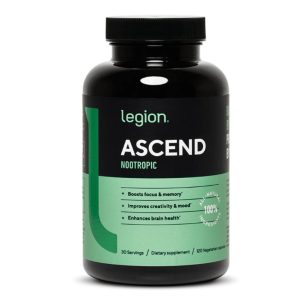

Key product features
What you should know
Legion Athletics Ascend is a well-formulated nootropic for memory enhancement, featuring effective and clinically-backed ingredients like oat straw extract, bacopa, and alpha GPC.
- Legion Athletics is known for its commitment to using high-quality, research-backed ingredients and providing transparent labeling, along with rigorous third-party testing.
- A 30-day supply costs $49.99, or about $1.67 per serving. This is an average market price for a comprehensive nootropic.
- If you’re looking for a natural, research-backed supplement to support your memory, brain health, and mental performance, Legion Ascend may be a good choice for you.
- Legion offers a money-back guarantee with no return necessary on first-time purchases for up to 365 days.
Why we like Legion Athletics Ascend as best for memory
Legion Athletics Ascend is a top-tier nootropic supplement designed to enhance memory and cognitive function, featuring a robust blend of ingredients, including oat straw extract, agmatine sulfate, bacopa, alpha GPC, and uridine monophosphate.
Oat (Avena sativa) straw extract, at 800 mg per serving, is known for its ability to boost cognitive performance and increase alpha brain waves, promoting a state of relaxed alertness. Clinical studies suggest that this dosage can significantly enhance mental clarity and focus. (16)
Agmatine sulfate may offer neuroprotective properties and support neurotransmitter function, contributing to overall cognitive health. More clinical research is needed in humans to determine an effective dose. (17) Bacopa monnieri, at 330 mg, is a well-researched Ayurvedic herb that may help improve memory and cognitive function. Studies show that doses of 300-600 mg can effectively enhance memory and reduce anxiety. (18)
Alpha GPC, included at 300 mg, boosts acetylcholine levels in the brain, which is essential for learning and memory. (19)
The 250 mg of uridine monophosphate in the formula plays a role in brain function by supporting synaptic connections and increasing the production of key neurotransmitters. Uridine and choline work synergistically to support brain function, so the inclusion of both is beneficial. (20)
One thing that sets Legion Ascend apart is that there are no stimulants in the formula. Some might mistake that for ineffectiveness because they don’t feel an immediate buzz like they might with other nootropics that do contain stimulants. Ascend is meant to be taken long-term because the effects can take several weeks to develop.
Legion Athletics is committed to using high-quality, research-backed ingredients, ensuring that each component of Ascend is included at clinically effective dosages. This dedication to quality is evident in their transparent labeling and rigorous third-party testing. Priced at $49.99 for a 30-day supply, Ascend offers good value at approximately $1.67 per serving.
What customers are saying
Legion Athletics Ascend nootropic has an average rating of 4.1 stars based on 90 reviews on Amazon. It’s important to note that most of the reviews on Amazon are from 2020 and earlier, and may not be an accurate reflection of the current product.
“I’ve been taking this product for a week or two now, and I’ve definitely noticed an improvement in my mental clarity,” writes Amazon customer Doug Platt.
“My thoughts are much less foggy, and I’ve been finding a lot more motivation to be productive throughout the day.”
Doug Platt, verified Amazon customer
Specs
| Active ingredients | Oat (Avena sativa) straw extract, agmatine sulfate, bacopa monnieri, alpha GPC, uridine monophosphate |
| Form | Capsule |
| Dose | 4 capsules |
| Servings per container | 30 |
| Cost per serving | $1.67 |
Best nootropics for energy: Lifeforce Peak Rise
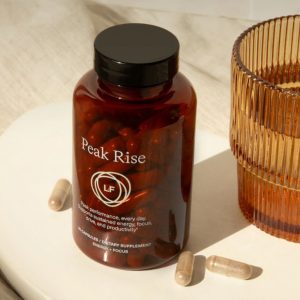

Key product features
What you should know
Lifeforce Peak Rise is a nootropic for energy enhancement, featuring clinically backed ingredients like caffeine, acetyl-L-carnitine HCl, and alpinia galanga root extract.
- Peak Rise is formulated with a unique combination of Dynamine®, TeaCrine®, and caffeine, which provides a balanced and sustained energy boost without the usual jitters or crash.
- A 30-day supply costs $120, putting each serving at $4.00. This is well above the average market price for a nootropic.
- This is ideal for individuals seeking a sustained boost in mental and physical energy who aren’t sensitive to stimulants like caffeine.
Why we like Lifeforce Peak Rise as best for energy
Lifeforce Peak Rise is a standout nootropic supplement for boosting mental and physical energy, thanks to its comprehensive blend of potent ingredients. Its formula includes Dynamine®, TeaCrine®, caffeine from PurCaf (natural coffee bean extract), acetyl-L-carnitine HCl, EnXtra® (Alpinia galanga root extract), Cereboost® (Panax ginseng root extract), Cognizin® Citicoline, Sibelius® (Sage) extract, and IQ200 (Kesum, or Polygonum minus).
Dynamine® and TeaCrine® are both known for their ability to increase energy and focus without the jitters associated with traditional stimulants. Dynamine®, at 85 mg, and TeaCrine®, at 50 mg, work synergistically with 125 mgs of caffeine to provide a smooth and sustained energy boost. Clinical studies have shown that these ingredients can enhance cognitive performance and reduce fatigue, making them ideal for those needing a reliable energy lift. (21)
Acetyl-L-carnitine HCl is included at 750 mg, a dosage supported by research to enhance mental energy and reduce fatigue. This compound helps in the transport of fatty acids into the mitochondria, boosting cellular energy production. Clinical studies often use doses of 500-2,000 mg, making the amount in this supplement both effective and safe. (22)
Another key ingredient is EnXtra® (Alpinia galanga root extract), which is shown to enhance alertness and focus for up to five hours without the crash associated with (and even without) caffeine. (2) Cereboost® (Panax ginseng root extract) shows promising effects on cognitive function and mental clarity. (23) Ginseng has been used traditionally to combat fatigue and enhance overall energy. (24) Cognizin® Citicoline supports brain energy and cognitive function by increasing the production of acetylcholine, a neurotransmitter crucial for learning and memory. (10)
Sibelius® (sage) extract and IQ200 (Kesum, or Polygonum minus) round out the formula. These ingredients may help protect the brain from oxidative stress and support overall cognitive health. (25, 26)
The caffeine content in Lifeforce Peak Rise is equivalent to about one and a half cups of coffee, so you need to be mindful of that when you take this supplement and what other sources of caffeine are in your diet.
Priced at $120 for a 30-day supply, Peak Rise is on the higher end of the market at approximately $4.00 per serving. While this price point reflects the premium quality and potent formulation of the supplement, we would prefer to see third-party testing.
Specs
| Active ingredients | Dynamine®, TeaCrine®, caffeine, Acetyl-L-carnitine HCl, Alpinia galanga, Panax ginseng, choline, sage, IQ200 |
| Form | Capsule |
| Dose | 3 capsules |
| Servings per container | 30 |
| Cost per serving | $4.00 |
Best nootropics for focus: Hunter Evolve Hunter Focus
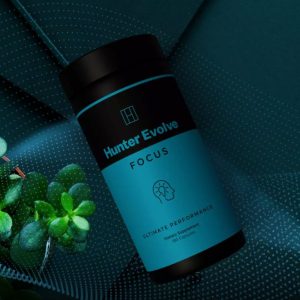

Key product features
What you should know
Hunter Evolve Hunter Focus contains 20 ingredients that may help boost focus and cognitive function, most notably ashwagandha, lion’s mane, and caffeine.
- We like that Hunter Focus combines caffeine with L-theanine to provide a balanced energy boost without the typical jitters associated with caffeine.
- At $3 per serving, Hunter Evolve Hunter Focus is more expensive than many other nootropic supplements on the market
- With 100 mg of caffeine, this nootropic is ideal for those who want a boost of energy.
Why we like Hunter Evolve Hunter Focus as best for focus
Hunter Evolve Hunter Focus combines 20 ingredients that may help improve concentration, memory, and mood. Its robust formula includes acetyl-L-carnitine, L-tyrosine, organic lion’s mane mushroom, bacopa, ashwagandha root, citicoline, L-theanine, Ginkgo biloba, caffeine anhydrous, phosphatidylserine, maritime pine bark extract, Rhodiola rosea extract, Panax ginseng, and Spanish sage.
Many of the ingredients in Hunter Focus, like ashwagandha, caffeine, and L-theanine, have been shown to improve focus, concentration, and overall cognitive function. Caffeine, at 100 mg per serving, provides a reliable energy boost similar to a cup of coffee. We love the addition of 200 mg of L-theanine to help balance the stimulating effects of caffeine. (3, 12) B vitamins are also included with the intention of helping improve energy levels, along with vitamins C, D3, and K2; however, without a deficiency or insufficiency, none of these additional vitamins will provide additional energy
Acetyl-L-carnitine plays a role in energy production within brain cells, improving mental energy and clarity. (22) Bacopa monnieri is traditionally used in Ayurvedic medicine to improve memory and cognitive performance. (18) Citicoline supports brain energy and enhances the production of acetylcholine, a neurotransmitter essential for learning and memory. (10)
Lion’s mane mushroom supports focus by enhancing cognitive function and reducing stress. Studies have shown it can help improve processing speed and attention, contributing to better mental clarity. However, this formula only contains 500 mg, which is under the typical doses of 1,000-3,000 mg used in studies. (9)
While this supplement contains a whopping 20 ingredients, it’s unclear if this is necessary. On their website, Hunter Evolve claims that because Hunter Focus contains all-natural ingredients, you should not experience any side effects.
“The idea that an all-natural ingredient cannot cause any side effects is flawed, as there are plenty of “all-natural ingredients” that could cause many side effects. This isn’t to say this product is dangerous, but suggesting because it’s made with “natural” ingredients shouldn’t be a determining factor for safety or efficacy” adds Chris Mohr, PhD, RD.
With so many ingredients, there’s always a chance someone could react negatively, especially since there are no studies investigating the synergistic effects of all of these combined ingredients at such high doses. As always, caution is advised as is talking to your own health care practitioner.
At $3 per serving, Hunter Evolve Hunter Focus is more expensive than many comparable supplements on the market and one of the most expensive products in our roundup. Given the high cost, it would be beneficial to see third-party testing.
Specs
| Active ingredients | Acetyl-L-carnitine, L-tyrosine, lion’s mane, bacopa, ashwagandha, citicoline, L-theanine, ginkgo biloba, caffeine, phosphatidylserine, Rhodiola, Panax ginseng |
| Form | Capsule |
| Dose | 6 capsules |
| Servings per container | 30 |
| Cost per serving | $3.00 |
How we test supplements
With so many nootropics to choose from, finding the best one for your individual needs and goals can be overwhelming. To improve your shopping experience, our team of nutrition and health experts analyzed dozens of nootropics, using criteria like key ingredients, effectiveness, safety, and price to find the best ones.
You can learn more about how we test and score nootropic supplements here.
Testing criteria
Efficacy—40%
Before making a product recommendation, our team determines whether a dietary supplement delivers the promised benefits, such as enhanced focus and cognitive performance. Here’s what we evaluate to find the most effective nootropics:
- Clinical evidence
- Calories per serving
- Dose efficacy
- Synergistic effects
- Proprietary blends
Safety and side effects—35%
Evaluating safety and side effects is essential to ensure that supplements do not cause harm or adverse reactions, especially with long-term use. This assessment helps protect consumers from potential health risks and ensures that the benefits of the supplement outweigh any negative impacts.
Here’s what we look for:
- Reported side effects
- Third-party testing
- Manufacturer accreditation
- Interaction with medications
- Artificial sweeteners
Value—20%
We want to help you get the best possible benefits for your investment in a nootropic, which is why we include supplements at different price points. Here are the factors we look at:
- Price per serving
- Subscription options
Customer experience—5%
Customer experience is important to us because it reflects how users feel about the product, from the purchasing process to actual use. Here’s what we look for when assessing customer experience:
- Ease of purchase
- Shipping and returns
- Customer support
Benefits of nootropics
Nootropics, often referred to as “smart drugs” or cognitive enhancers, are substances that can improve brain performance. These supplements are gaining popularity for their potential to boost various aspects of mental function, including memory, focus, creativity, and overall cognitive processing. The benefits of nootropics can be extensive, particularly for individuals seeking to optimize their mental performance in demanding environments.
Improved memory
One of the primary benefits of nootropics is their ability to help enhance memory. Certain nootropic compounds, such as bacopa monnieri and lion’s mane, are known to support memory retention and recall. These supplements work by promoting the growth of new neurons and supporting synaptic plasticity, which is crucial for long-term memory formation. Improved memory can be particularly beneficial for students, professionals, and anyone engaged in activities that require significant mental effort. (18, 9)
Enhanced focus and concentration
Nootropics like caffeine, L-theanine, and Rhodiola rosea may significantly improve focus and concentration. These ingredients may help to reduce mental fatigue and brain fog, and increase attention span, allowing individuals to stay engaged and productive for longer periods. This is especially useful for tasks that require sustained mental effort, such as studying, working on complex projects, or participating in long meetings. (4, 12, 6)
Mood enhancement and stress reduction
Many nootropics also offer mood-enhancing and stress-reducing benefits. Ingredients like ashwagandha and Rhodiola rosea are adaptogens, which may help the body manage stress more effectively. These compounds may reduce anxiety, improve mood, and promote a sense of calm without the sedative effects of traditional anti-anxiety medications. By improving mood and reducing stress, nootropics may also indirectly enhance cognitive performance, as a calm and positive mind is better able to process information and solve problems. (3, 6)
Increased mental energy
Nootropics such as acetyl-L-carnitine and citicoline are known to boost mental energy. These ingredients help to increase the production of neurotransmitters and support mitochondrial function, providing the brain with the energy it needs to perform optimally. Increased mental energy can help combat fatigue, improve motivation, and enhance overall cognitive function. (10, 23)
Neuroprotection
Another potential benefit of nootropics is their neuroprotective properties. Ingredients like lion’s mane and phosphatidylserine support brain health by protecting neurons from damage and promoting the repair of neural pathways. These protective effects may help to maintain cognitive function as we age and may reduce the risk of neurodegenerative diseases. (9, 11)
Who should take nootropics
Nootropics can be beneficial for a wide range of individuals looking to enhance their cognitive abilities and overall mental performance. The specific benefits and suitability of nootropics varies depending on individual needs and goals. Here are some groups of people who may particularly benefit from taking nootropic supplements:
- Students and academics
- Professionals
- Athletes
- Older adults
- Creative professionals
What ingredients are in nootropics
Nootropics encompass a wide range of ingredients designed to enhance cognitive function, memory, creativity, and overall mental performance. Some nootropics supplements have a single ingredient focus, while others have comprehensive multi-ingredient formulas.
Some of the most common ingredients in nootropics include:
- Bacopa monnieri
- Lion’s mane
- Rhodiola rosea
- Ginkgo biloba
- Ashwagandha
- Panax ginseng
- Alpha GPC
- Caffeine
- L-theanine
- Citicoline
- Phosphatidylserine
- Huperzine A
What to look for in the best nootropic supplements
When choosing the best nootropic supplements, it’s essential to consider several key factors to ensure you’re selecting a product that is both effective and safe. Here’s what to look for:
Ingredient quality
High-quality nootropics use ingredients that are well-researched and known for their cognitive-enhancing properties. Look for supplements that include clinically backed ingredients and avoid those with fillers or artificial additives.
Dose efficacy
Ensure that the supplement contains ingredients at clinically effective dosages. Under-dosed supplements may not provide the desired cognitive benefits, so it’s important to choose products that match the dosages used in successful studies.
Synergistic effects
Some nootropic ingredients work better together, enhancing each other’s effects. Look for supplements that combine ingredients known to have synergistic effects, such as caffeine and L-Theanine, which can boost focus and energy while reducing jitters. (12)
Transparent labeling
Transparency in labeling is crucial. The best nootropic supplements clearly list all ingredients and their respective dosages, allowing you to understand exactly what you’re taking and ensuring there are no proprietary blends hiding the specifics.
Third-party testing
Third-party testing ensures the quality, potency, and safety of the supplement. Look for nootropics that have been independently tested to confirm they meet high standards for purity and effectiveness.
Brand reputation
Consider the reputation of the brand. Established companies with positive customer reviews and a history of quality products are more likely to offer effective and safe nootropic supplements.
Potential side effects of nootropics
While nootropics may offer significant cognitive benefits, it’s important to be aware of potential side effects that could occur, especially with long-term use or high dosages. Understanding these risks can help you make informed decisions about incorporating nootropics into your routine.
Insomnia
Stimulant-based nootropics like caffeine can interfere with sleep patterns, leading to difficulty falling or staying asleep. (27)
Anxiety and jitters
Stimulants such as caffeine and certain adaptogens can sometimes increase anxiety levels or cause jitteriness, especially in sensitive individuals. (28)
Interactions with medications
Nootropics can interact with various medications, potentially altering their effectiveness or increasing the risk of side effects. For example, individuals taking diabetes medications should avoid nootropics that contain Mucuna pruriens. (7) Consulting with a healthcare professional before starting any new supplement regimen is advisable, especially if you have underlying health conditions or are taking other medications.
Allergic reactions
Although rare, some individuals may experience allergic reactions to certain herbs or compounds found in nootropic supplements.
FAQs
Will nootropics immediately improve my cognitive function?
Certain nootropics may provide immediate improvements in cognitive function, such as increased focus and mental clarity, especially if they contain stimulants like caffeine. However, many nootropics require consistent use over several weeks to achieve significant and lasting cognitive benefits. The effects can vary depending on the individual and the specific nootropic used.
Are nootropic supplements safe?
Nootropic supplements can be safe when used as directed, but their safety depends on the ingredients and individual health conditions. It’s important to choose high-quality, research-backed products and consult with a healthcare professional before starting any new supplement. Potential side effects and interactions with medications should also be considered.
What is the most effective nootropic?
The most effective nootropic varies depending on individual needs and goals. Popular options include caffeine for immediate focus and energy, bacopa for memory enhancement, and lion’s mane for overall cognitive benefits. Ashwagandha is well-regarded for reducing stress and improving mental clarity, while Rhodiola is known for enhancing mood and reducing fatigue.
What is the controversy with nootropics?
The controversy with nootropics centers around the lack of regulation and varying levels of scientific evidence supporting their effectiveness. Some nootropics are well-researched and proven to be effective, while others lack robust clinical trials. Additionally, the safety and long-term effects of many nootropics are not well-understood, raising concerns about their potential side effects and interactions with other medications.
These statements have not been evaluated by the Food and Drug Administration. These products are not intended to diagnose, treat, cure, or prevent any diseases.
Our experts
Melissa Boufounos, CHN
Melissa is a certified holistic nutritionist in Canada who specializes in sports nutrition. She has been an athlete for most of her life and plays competitive ice hockey, ball hockey, and tennis. She’s also competed in over 60 obstacle course races. As a freelance writer, Melissa specializes in nutrition, health, and fitness content.
Christopher Mohr, Ph.D., RD
Dr. Chris Mohr is an internationally recognized subject matter expert and speaker and performance coach. Through his facilitation and online resources, he works closely with some of the largest corporations in the world including Deloitte, Delta Airlines, Johnson & Johnson and more to help busy executives all over the world, develop the energy to thrive personally and professionally.
Robert Wildman, Ph.D., RD, LD, CISSN, FISSN
Dr. Robert Wildman (“Dr. Rob”) is a globally renowned exercise, fitness, and nutrition expert who speaks around the world on exercise and sport nutrition, and continues to work with professional and elite athletes to achieve their highest level of performance as well as health and fitness. Rob received his Ph.D. from The Ohio State University, earned his MS from Florida State University, and earned his BS from the University of Pittsburgh. He is also a registered and licensed dietitian.
Victoria Burgess, Ph.D., CSCS, CISSN
Victoria Burgess earned her Ph.D. in Health and Human Performance from Concordia University Chicago and holds her NSCA CSCS and Certified Sports Nutritionist (CISSN). She is an adjunct professor in the Human Performance and Nutrition department at Concordia University Chicago & Parker University, where she teaches undergraduate, graduate, and doctoral level courses.
Lily Moe
Lily is a Brooklyn-based writer and editor with over seven years of experience in health media. As a former Fitness Coach, Lily’s editorial prowess has largely focused on fitness, nutrition, and weight management. She has also spent a fair share of time in testing labs, analyzing everything from protein powders to yoga mats. Her work has appeared in Verywell Fit, Verywell Mind, Health, and more.
Joana Neziri, M.S., NASM CPT
Joana is a writer, editor, and content strategist focusing on nutrition, fitness, and all things health. After earning a master’s degree in business from the University of North Florida, she began a career in research and digital marketing.
Kelly Uhler
Kelly has a multifaceted background in elder care, health care, and copywriting. She has worked for organizations such as A Place For Mom and Homecare.com, which gave her the opportunity to work closely with families, providing reliable information to help them make informed decisions about their loved one’s health, safety, and quality of life.

Melissa Boufounos, CHN
Fortune Recommends Nutrition Writer
About Author
Melissa Boufounos is a certified holistic nutritionist, nutrition writer, and lifelong athlete in the greater Ottawa, Ontario, Canada area. She specializes in sports nutrition and works with teen hockey players and competitive obstacle course race athletes in her virtual private practice MB Performance Nutrition.
